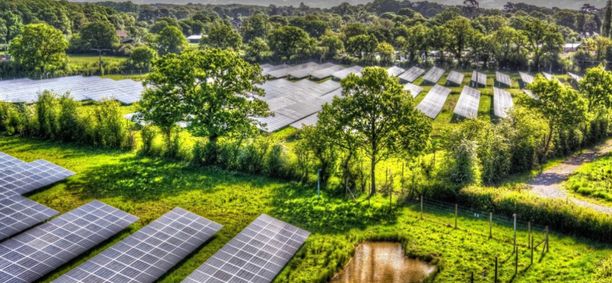Daily Express
‘I’m a money expert – these five investments can outstrip property returns in the UK
By Jasmine Birtles

It is no secret that the cost of getting on the property ladder in the UK is currently at an exorbitant level. Recent research has shown that a third of millennials may never be able to own their own home and many others will continue to rent into their forties.
For decades, buying property has been viewed as the best way to build wealth and see a return on your investment. However, I don’t think that is the case.
Fluctuating house prices, high mortgage rates, and increasing upkeep costs mean that the return on property isn’t what it used to be. This is particularly the case for buy-to-let property investments which returned an average rental yield of five percent to eight percent last year.
If you’re currently struggling to afford to invest in property or looking for a more lucrative investment opportunity than buy-to-let, you’re in luck! Here, I will share five high-yield investments that could provide a higher return than property in the UK.
It turns out you don’t need to be a homeowner to grow your wealth.
ETFs
ETF stands for ‘Exchange Traded Fund’. In simple terms, ETFs are investment funds that are traded on stock exchanges, just like individual stocks.
ETFs are designed to track the performance of a specific index, such as the S&P 500 or Nasdaq. This means that when you invest in an ETF, you’re essentially buying a diversified group of assets that replicate the performance of the index it is tracking.
Annual returns on ETF investments vary from three percent up to 25 percent. Usually, ETFs on the lower end of this range come with lower risk.
By conducting careful research and identifying profitable opportunities, it is very possible to receive a higher return over one year than you would on a rental property.
Cryptocurrency
Cryptocurrency investing can be very volatile (of no interest for this blog)
REITs
REITs are the best gateway to property investing for people who can’t quite afford to put a down payment on a house!
REIT stands for ‘Real Estate Investment Trust. A REIT is a type of investment that allows everyday investors to invest in the real estate market without having to actually buy and manage properties themselves.
In simple terms, a REIT is similar to a mutual fund, but instead of investing in stocks and bonds, it invests in real estate assets.
One key feature of a REIT is that it must distribute at least 90 percent of its taxable income to its shareholders in the form of dividends. This means that investors in a REIT can earn a consistent income stream from rental payments and property sales.
But, can REITs outperform properties? It turns out they can. Data from Savills showed that, between 2010 and 2020, the average total return for a REIT in the UK was 7.2 percent. Whereas, the average total return for a residential property over the same time frame was 6.4 percent.
Some platforms allow you to invest in REITs from as little as £50, which makes them much more accessible than the property ladder!
Value stocks
For the last 50 years, the stock market has outperformed the property market. Therefore, stocks might be worth considering.
In particular, value stocks have the ability to provide generous returns to investors who manage to identify undervalued opportunities. Here’s how to find undervalued stocks.
A ‘value stock’ is a fancy term for a stock that is trading below its intrinsic value. Because of their undervalued price, these stocks have a lot of room for growth.
Value investing is a strategy that is most famously used by Warren Buffet – so if you get it right, it can be very profitable.
Start-ups
Investing in new businesses can be very rewarding, however, investing in start-ups can be risky! There is no guarantee that the business you invest in will succeed. (of no interest for this blog)
If you’re looking for alternative ways to build wealth that aren’t property, you should always keep diversification in mind (i.e. spread your bets!).
A diverse portfolio is a portfolio that consists of multiple different investments, rather than putting all of your eggs in one basket!
The ability to diversify is one of the main advantages of putting your money into an asset that isn’t property. Unlike hefty house deposits, many online brokerages offer low minimum deposits that allow you to spread your funds across multiple different assets.
Diversifying will reduce the impact of losses and increase your chances of investing in an asset that will generate returns.















